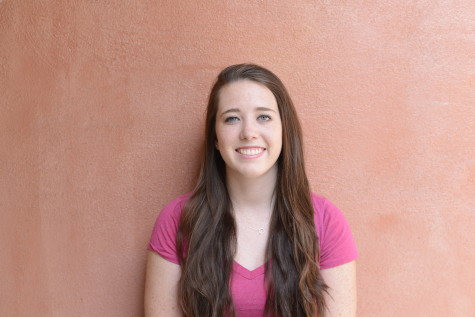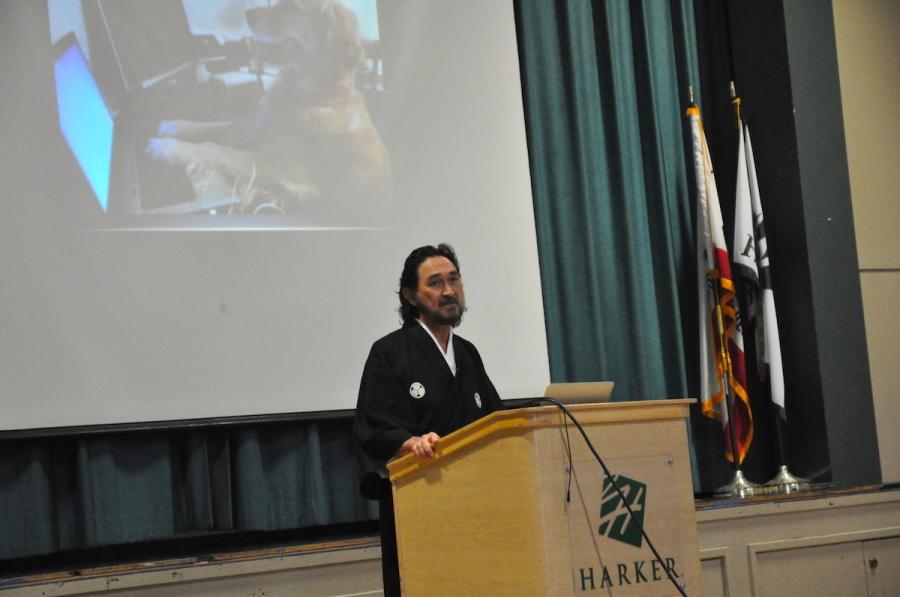Straight Talk: Experiences necessary in self-definition
“Who are you? No, not ‘What do you do?’”
When Stanford professor Stephen Murphy-Shigematsu spoke to the Upper School two weeks ago, he spent the majority of his presentation encouraging students to consider their own identities—outside the context of our resumes.
After months of staring at a blank personal statement document, “Who are you?” felt all too familiar. Not because I now had an answer, but because everyone seemed to be asking it.
The personal statement in itself is intimidating, but realizing that the most “successful” pieces from past years have been by students who wrote about their challenges, their beliefs, their thought processes—not their activities—initially made it seem almost unfathomable.
I couldn’t, and still can’t, even begin to think about who I am without almost immediately jumping to my experiences. Maybe this is simply justification for leaving that personal statement document blank until a week and a half before my first college application deadlines, but I’d like to believe that we’re all, to some extent, the sum of our own experiences.
While we definitely shouldn’t reduce ourselves down to our accomplishments or our numbers, the fact that experience often leads to growth should validate including how we chose to spend our time in our attempts to expound identity.
Psychologists have spent centuries studying the nature versus nurture debate, but have concluded time and time again that we each reflect a balance between the two. As much as we rely on our genetics, our character will always be influenced by our experiences as well. Thus, scientifically speaking, isn’t it nearly impossible to talk about who we are without talking about what we’ve done, what we’ve learned, or at least what we’ve observed?
Especially as we’re growing up, we often learn the most from the results of our actions. As toddlers, if we touch a hot pan, we may get burned, but we won’t do it again. As high schoolers, we strengthen our core values when we do what we already know we love but we learn more and more about ourselves each time we step outside our comfort zones.
Just as our genes comprise our biological makeup, all of our experiences—whether trivial or monumental—are ultimately embedded in the fabrics we pull on to begin figuring out who we are.
While I’m sure I’ll eventually come to appreciate the personal statement for requiring thorough reflection during a time when I was otherwise trying to catalog my accomplishments, right now, I’ll continue learning from my experiences.

Sheridan Tobin is the co-Editor in Chief of The Winged Post. She is a senior and this is her fourth year on staff. She was the Global Editor and Opinion...


















![“[Building nerf blasters] became this outlet of creativity for me that hasn't been matched by anything else. The process [of] making a build complete to your desire is such a painstakingly difficult process, but I've had to learn from [the skills needed from] soldering to proper painting. There's so many different options for everything, if you think about it, it exists. The best part is [that] if it doesn't exist, you can build it yourself," Ishaan Parate said.](https://harkeraquila.com/wp-content/uploads/2022/08/DSC_8149-900x604.jpg)




![“When I came into high school, I was ready to be a follower. But DECA was a game changer for me. It helped me overcome my fear of public speaking, and it's played such a major role in who I've become today. To be able to successfully lead a chapter of 150 students, an officer team and be one of the upperclassmen I once really admired is something I'm [really] proud of,” Anvitha Tummala ('21) said.](https://harkeraquila.com/wp-content/uploads/2021/07/Screen-Shot-2021-07-25-at-9.50.05-AM-900x594.png)







![“I think getting up in the morning and having a sense of purpose [is exciting]. I think without a certain amount of drive, life is kind of obsolete and mundane, and I think having that every single day is what makes each day unique and kind of makes life exciting,” Neymika Jain (12) said.](https://harkeraquila.com/wp-content/uploads/2017/06/Screen-Shot-2017-06-03-at-4.54.16-PM.png)








![“My slogan is ‘slow feet, don’t eat, and I’m hungry.’ You need to run fast to get where you are–you aren't going to get those championships if you aren't fast,” Angel Cervantes (12) said. “I want to do well in school on my tests and in track and win championships for my team. I live by that, [and] I can do that anywhere: in the classroom or on the field.”](https://harkeraquila.com/wp-content/uploads/2018/06/DSC5146-900x601.jpg)
![“[Volleyball has] taught me how to fall correctly, and another thing it taught is that you don’t have to be the best at something to be good at it. If you just hit the ball in a smart way, then it still scores points and you’re good at it. You could be a background player and still make a much bigger impact on the team than you would think,” Anya Gert (’20) said.](https://harkeraquila.com/wp-content/uploads/2020/06/AnnaGert_JinTuan_HoHPhotoEdited-600x900.jpeg)

![“I'm not nearly there yet, but [my confidence has] definitely been getting better since I was pretty shy and timid coming into Harker my freshman year. I know that there's a lot of people that are really confident in what they do, and I really admire them. Everyone's so driven and that has really pushed me to kind of try to find my own place in high school and be more confident,” Alyssa Huang (’20) said.](https://harkeraquila.com/wp-content/uploads/2020/06/AlyssaHuang_EmilyChen_HoHPhoto-900x749.jpeg)



